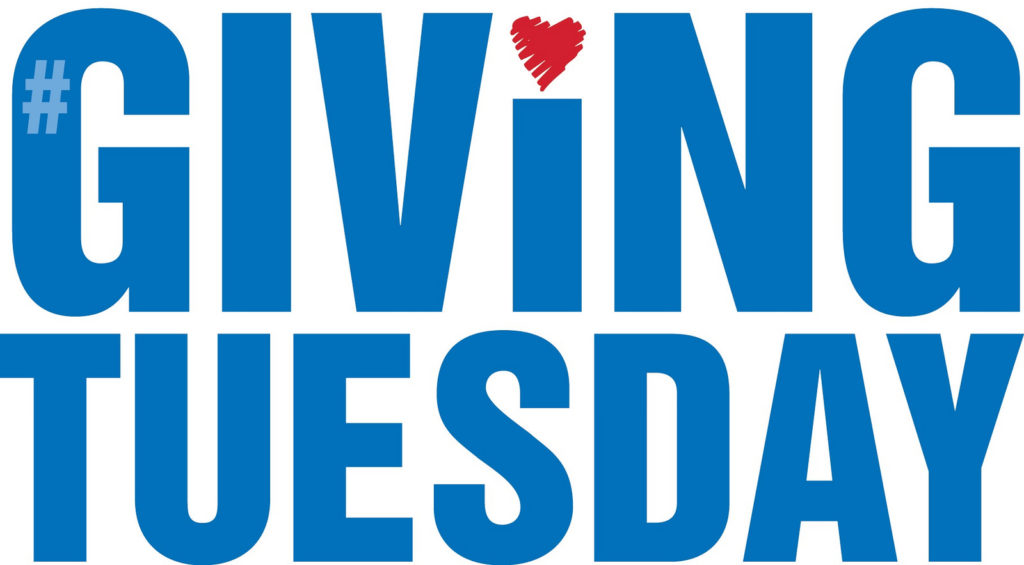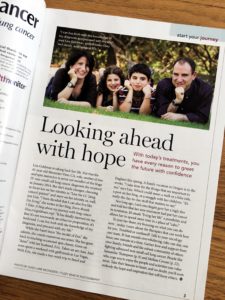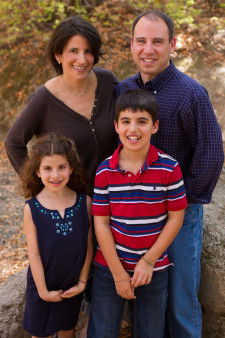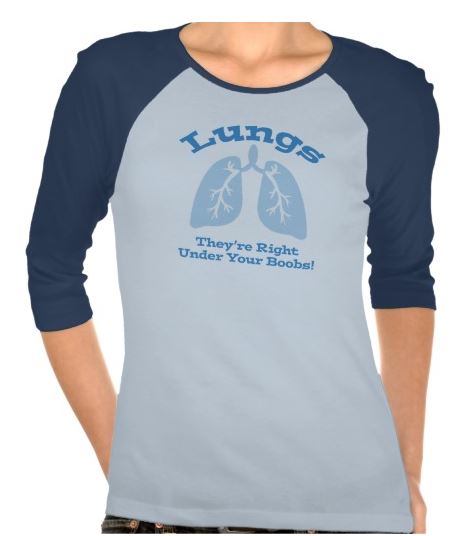What I’ve Been Up to for LCAM 2016 & #Giving Tuesday

Photo by Penn State
It’s Lung Cancer Awareness Month (LCAM) and I’m just getting here now to remind you about it (oops). Unfortunately, my blogging has been stalled out for a bit, but I’m still here! I hope you will consider contributing to my ROS1+ Research Fundraiser for #GivingTuesday. We are working hard, making big progress on getting things rolling and greatly appreciate any support you can spare. Even a few dollars is welcome. This is an ambitious, ground-breaking project, and it’s going to take a village!
Even though I haven’t been blogging, I’ve still been busy advocating for Lung Cancer causes. Here is a sample of what I’ve been doing the last few months:
- I appeared in this awesome video on the ROS1 research story for the ALCF & ALCMI, which was first released at the annual ALCF Gala on November 12.
- I appeared in an advertisement in Times Square which has appeared once an hour, of every hour of every day in November.
- I shared my story with the A Woman’s Health magazine at http://awomanshealth.com/voices-of-value-lisa-goldman/ and Healthmonitor’s magazine “Guide to Advanced Lung Cancer.”
- I did an interview on a local public TV channel that’s been running all month. I also participated in this shorter #GivingTuesday video.
- I spoke to my congregation at Rosh Hashana. Journalist Lloyd Graff republished my talk on his blog at http://todaysmachiningworld.com/every-breath-i-take/.
- I spoke at the annual conference for California Clinical Laboratory Association (CCLA) in San Diego, CA. I have included the text of my speech to the lab professionals below (it borrows from some previous blog posts, but has a lot of new material, too).
- I spoke at an event at Good Samaritan Hospital in San Jose, CA, helping educate and spread awareness for LCAM (the talk was similar to the Rosh Hashana one reposted by Lloyd Graff, and the one I delivered to CCLA, posted below).
- And, of course, I continue my regular, daily, duties helping administer the ROS1+ Cancer FB group, supporting the ROS1+ Research Project and as a member of the ALCF’s Patient Advisory Board.
Again, if you are moved to help support my efforts, please consider contributing to my ROS1+ Research Fundraiser & spreading the word (on Giving Tuesday, or any day of the year!). Thank you – I appreciate it so much.
_______________________
Transcript of CCLA Talk, November 3, 2016
Title: Patient Perspective
Hi, my name is Lisa Goldman. Just last week I celebrated my 44th birthday. It was not a day many expected me to see. I was diagnosed about 3 years ago, at age 41, with Stage IV lung cancer. Statistics told me that I had about a 15% chance of surviving 1 year … and that I have a 1-2% chance of surviving 5 years.
When I first got my lung cancer diagnosis, I was shocked. I had taught a dozen spin classes the month before I was diagnosed. I was a fitness fanatic, a never-smoker, a non-drinker, an almost vegan of over 20 years. The previous year, the wife of my yoga teacher, a 34 year old non-smoker, had gotten diagnosed with lung cancer and passed away less than a year after her diagnosis. I had brought over a meal, to try to help in some small way. Yet, somehow, the message that lung cancer could strike anyone – even me – did not sink in. I thought it was just some horrible, but exceptional, fluke.
I was wrong.
It turns out lung cancer is the number one cancer killer in the world — by a mile. Lung cancer kills more people each year than the next 5 most lethal cancers combined, and a great deal of those are non-smokers. In fact, twice as many more women die of lung cancer than breast cancer every year in the US. One would think, with numbers like these, the public would be more aware of the threat of lung cancer. But, the myth, and the stigma, of the weathered Marlboro Man suffering after a lifetime of smoking seems to overwhelm the facts.
The truth is lung cancer looks like me.
Living with advanced cancer is tough – physically, and mentally, even more so. It feels a lot like walking a tightrope. Creeping ever so carefully, trying to balance on the slimmest of margins, never any real chance to let down your guard. Your life may hang in the balance of a test result processed by a person sitting in a lab somewhere who knows you only as the patient number attached to your test tubes in a crowd of other test tubes. And yet, that stranger will know about your well-being before you do.
The worst part about living with a condition as serious as advanced cancer, walking this tightrope, is that it’s impossible not to glimpse into the abyss below – death. So far, for me, the doctors have had an answer for every blip, adjusting a medication, changing a treatment course. But making those medical adjustments is a lot easier than recovering from the emotional scare of glimpsing a bad result, or even just contemplating facing the very real possibility of one.
So how do I proceed??
I am constantly vigilant. I go in for labs every 4 weeks, and the information I glean from those results tides me over until I my next CT or PET scan gives me more definitive data.
Luckily, getting labs done is one of the smoothest parts of my healthcare experience. My cancer center has it’s own lab for us frequent fliers, so we can avoid the main hospital lab with its lines and germ-ridden crowds which can be extra dangerous for immune-compromised cancer patients. The phlebotomists are accustomed to patients whose veins, burned (literally) by chemo, like to do a deep dive at the very sight of a needle. G-d bless the poor phlebotomists that are so patient with my ninja veins – once so easy to find, now, after 3 years of treatment, just up and disappear … faster than my kids when it’s time to empty the dishwasher.
In addition to convenient blood draws, I greatly appreciate the efficiency in receiving results. Unlike scans, for which I often have to wait several torturous days (and sleepless nights) to hear the outcome, lab results are usually delivered within hours. Not only that, but with electronic records, I can review the results in detail at home. As someone without a medical degree, I so appreciate and utilize various tools to help me understand my lab results: checking whether my numbers fall within the posted normal ranges, comparing to my past results to detect any changes or trends using the graphing tools, Googling terms like AST and neutrophils to determine the significance of particular items. It is very empowering for me as a patient, to have access to my own lab results in real time. It allows me to better understand my own situation, and go into my next doctor appointment with better questions & determine more effective treatment plans, together.
Of course, with this power, comes some cost. Essentially, I use my monthly lab results as a sort of dashboard — the labs might not offer as much information on the status of my disease as a scan, but they give clues, hints about whether I need to get a scan sooner than planned or not, whether I need start researching and preparing for possible treatment changes or clinical trial applications more urgently, or if I can relax a little, allow my focus to shift to something besides my health for a few weeks. Sometimes my lab results can be very reassuring. Other times they are unsettling. If I have been watching a cancer marker very closely, and it goes up, even a tiny bit, I don’t sleep as well, no matter how much my oncologist reassures me that the shift is statistically insignificant. Accuracy is so critical because patients like me rely on every scrap of information we can gather to determine how to live our lives in a very, very real way.
Still, even though I sometimes stress-out, I wouldn’t trade my access to my lab results for anything. I believe firmly, that a knowledgeable patient is an empowered patient – a patient that has a greater chance of living a longer life … or if not a longer life, than a life with a better quality. I can seek guidance and expertise, and adjust course more efficiently. I’d like to share one recent example: In September I started to experience shortness of breath – a symptom especially worrisome for a lung cancer patient. I spoke with my oncologist, sure he was going to accelerate my scan. I already had visions of progression in my lungs, I was contemplating which clinical trial drug I might try to switch to. I was ready to ring the alarms. “Wait,” my doctor said, “let’s run some labs first.” Turns out, my iron was extremely low. He scheduled me for an iron infusion, and voila!, no more shortness of breath! Pretty incredible. Score one for the labs (and great doctors that know how to use them)!
Of course, iron is a pretty easy thing to test for. I can’t tell you how much I look forward to the day when labs can test more cancer markers, and even do reliable liquid biopsies. The more us cancer patients are able to track the cancer load in our systems via blood tests, the better we will be able to keep ahead of this disease and extend our lives. Someday, I believe liquid biopsies will overtake scans as the best cancer load measurement tool, both less invasive, and more sensitive and accurate (reserving scans only for mapping out the precise locations of the load in case surgery or radiation is needed, but less necessary for patients like me, who are currently stable on chemotherapy or oral drugs). I fully expect that someday (and patients like me dearly hope that someday is sooner rather than later), labs, liquid biopsies and their ability to catch cancer cells when they are at microscopic and manageable levels will be as critical to the “war on cancer” as finding an absolute cure.
I want to conclude with one final thought.
At first, when I got my diagnosis, I went into survival mode. I swiftly adopted a new identity. I left my previous identity as a mom, wife, fitness instructor, school volunteer, and crafter, completely behind. I became “Lisa the LC patient.” I immersed myself in the LC world: surviving treatments, managing side effects, researching, blogging, advocating, thinking about LC and my mortality in some form or another almost constantly. I poured over every lab test like it was the ark of the covenant.
At around the two year mark of living this way, I grew weary of living like this. I wanted to reclaim some of my previous self, but, letting go of LC as my primary identity felt terrifying. Having experienced that devastating period at initial diagnosis when the rug was ripped completely out from under me, I knew exactly how much I had to lose, and how devastatingly quickly I could lose it. For a long time, it felt naive, stupid even, to re-engage in my pre-cancer life. I didn’t want to open myself up to that excruciating wake-up call again, and I wasn’t sure how to avoid it except to constantly be prepared for the worst – to curtail living in order to be ready to die within weeks.
Most people have the luxury of avoiding thoughts about their mortality until it is very close. Even many cancer patients are able to cope by telling themselves that their cancer isn’t real, isn’t deadly. That’s not me. I am acutely aware that everything I experience in life will forevermore be through the lens of having this diagnosis. I will always sweat out every test result, every time. BUT – I am also learning – re-learning – how to reach for more. It finally dawned on me that it’s not necessarily an either/or proposition, it’s both/and. I can live both with the knowledge of my diagnosis, my mortality, and proceed with my life. I can sweat out every lab and scan AND resume teaching, traveling, mothering my 2 young children, attempting art. Because, what if I AM in the 2% that survives 5 or more years?
I now rely on my lab tests as a key tool in the arsenal that allows me to live the days I have left as fully as I can. I rely on the phlebotomists skill with my tired, squirrelly veins, I rely on the accuracy of the results to make critical treatment decisions, and I rely on the merciful speed in which they are delivered. Labs are a critical piece of puzzle that has allowed me to reclaim pieces of my life – of myself – and carry on. Thank you for being a part of that puzzle.



